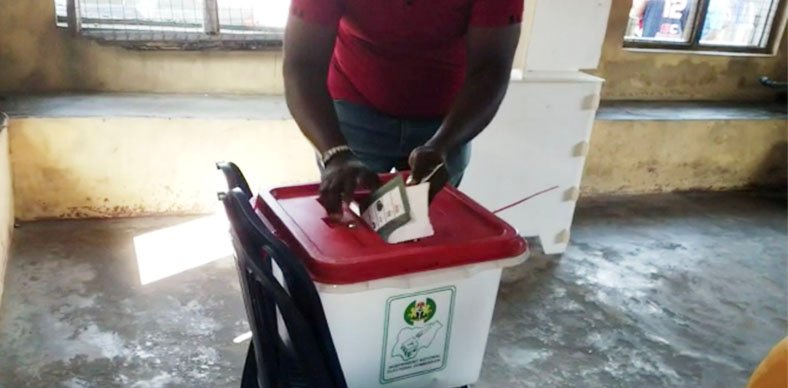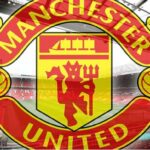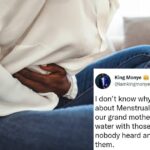
NOW that pretty much everyone and his cat has declared to run for president in 2023, I think it is time for those of us who would be the ones casting votes to take a realistic view of the lie of the land and ask ourselves uncomfortable but necessary questions.
I think the first one I want to knock out of the deck is the issue of whether a party outside of the ruling All Progressives Congress and the main opposition Peoples Democratic Party can win the presidency.
Let’s get it out of the way, they can’t.
Not in 2023 at least.
There have been opportunities since 2019 for them to work their way into genuine contention but all of those opportunities were literally thrown away. The largest third-force vote in 2019 went to the late Obadiah Mailafia of the African Democratic Congress. He had just shy of 98,000 votes in an election where there were more than 27 million votes cast. Just think about it. The biggest third-forcer did not have up to 0.5% of all votes cast. In fact, all the third-force parties combined had just over 3% of the total valid votes. That ought to be a healthy reality check with respect to parties outside the big two and, in reality, that is par de course for the American-style democracy we have so unfaithfully copied. There will be two big parties and the rest will be there picking the scraps. Left to me, I’d adopt the French model that lets all participants run in a first round, then take part in a lot of horse-trading before the top two duke it out for the actual presidency. Something to take from this is that if you vote for one of the third-force guys, you would be depriving your definition of the “less bad” of the bad two of your vote and giving it to the “more bad.”
Think about that.
There are other factors that work against third-force candidates, not least the fact that there are 176,846 polling units in the country. On the day of the presidential election, a party that is interested in winning will need to have its agents in each of these polling units and will need to pay them enough to ensure that they do not become fifth columnists on that day. I have seen party agents from smaller parties collect money on election day and begin to work for another party on the spot.
Do the smaller parties have mechanisms to check this?
Can the smaller parties raise the up to ₦8,842,300,000 that may be the minimum required (₦50,000 per agent per polling unit) just for party agents alone for a day’s work? These are realities. ₦8 billion is needed for one small segment of election day alone…
On to the next, and we are talking about the big two, APC and PDP. As third-force advocates never tire of telling us, both parties are the same. This argument has a lot of merits especially when you consider the spate of defections and counter defections between both parties. The Achilles heel of the argument, however, is this: if by some miracle a third-force party wins the presidency next year, there is not much in our system that prevents the same politicians from all suddenly seeing the light and defecting en masse to such a party. Would we then change our argument to “APC is the same as PDP is the same as KOWA?”
Herein lies one of the big challenges we face. Our system encourages coalescing around individuals rather than what acronym they are flying. While the general public and the legal system agree that votes are given to parties, the political operators know that as configured, Nigeria’s political system is built for individuals and interest groups. This is crucial and understanding that this will enable people to make the assessment of the candidates they are presented with. So much is made about the error of 2015 but not enough is asked about what we had in front of us back then. Ultimately, voters had no choice between the APC and PDP candidates because that is what the parties presented to us and that is one of the main issues. The character of the party in Nigeria is built on the individual at the head of the party. There is too much power concentrated in the person of the party leader in our system and our culture of obeisance and eye-service makes it worse.
This is why the APC’s seven years in power have been disastrous: the party took the character of its leader, Major General Muhammadu Buhari (retd.). The PDP, in the first eight years especially, took the character of its first leader, Olusegun Obasanjo. Was Uncle Sege perfect? Not at all, but in the light of all that has happened since, it is almost impossible to deny that his era was in every sense of the expression, “the good old days,” and this is where we need to be careful.
I am not a member of either party, so I cannot be involved in the selection of their aspirants. I suspect that most people reading this would not be party members either. But there is a need to find a way to make the parties know that we are aware that whoever is at the top of the ticket is what the party would become over the next four to eight years and this brings me back to the Obasanjo comparison. For all his faults, and there were many, one thing that Obasanjo cannot be accused of not having is capacity. Uncle Sege’s capacity was vital for the situation that Nigeria was in when he took over back in 1999.
Consider this: when Obasanjo took over, Nigeria’s debt service to revenue ratio was hitting the 60% mark, our foreign reserves were just under $1 billion and at a point under Abacha, inflation actually hit 72.8%! Do such figures sound familiar?
The man came into office and did not spend an undue amount of time blaming the previous government but rather rolled up his sleeves and got to work. By the time he was leaving eight years later, he bequeathed his successor foreign reserves that were hitting the $40 billion mark and our debt was virtually non-existent. That is what we need next year, someone who has the proven capacity to roll up his sleeves and get to work. Someone, who is not going to wring his hands and complain about the eight disastrous years of Buhari, but rather behave like those years did not exist because such a person will be facing arguably a worse mess than what Obasanjo inherited, he will be facing the fact that unlike in 1999, today, the Nigerian military does not have a monopoly of violence within its borders and members of the political class are not at all averse to arming some of those nasty types in a twisted game of brinkmanship. That is the current lie of the land.
But would we get such a person if he fails to emerge from the primaries of both parties?
That is the question. In both parties as of today, we have wide fields of declared candidates ranging from the good to the bad, to the ugly. That is the nature of big-tent parties, which is what both the APC and the PDP are. If both parties end up presenting us with Yahaya Bello and Peter Obi to vote for, the choice would be obvious.
But what if both parties present us with Nyesom Wike and Rotimi Amaechi?
Neither is palatable in my opinion but we’d have to choose one and then be faced with their bitter rivalry and gangster-style politics playing out on the national stage. Thus we, as a voting public, need to find a way to make the parties understand that they have to present us with decent options. That, for me, is the way forward.
- Nwanze is a partner at SBM Intelligence
Copyright PUNCH.
All rights reserved. This material, and other digital content on this website, may not be reproduced, published, broadcast, rewritten or redistributed in whole or in part without prior express written permission from PUNCH.
Contact: [email protected]





